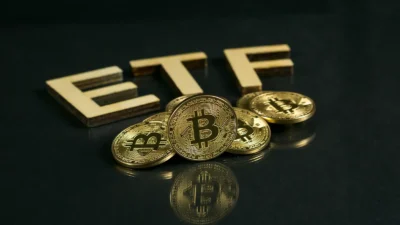Table of Contents
Toggle- A Short note on cryptocurrency
- What is feedback trading?
- Feedback Trading in the crypto market
- Benefits of feedback trading in crypto
- Impact of feedback trading on the crypto market
- The potential effect of new regulations on investment
- Crypto and Policymakers
- Factors contributed to the market crash
- Existence of positive feedback trading behavior
- Feedback Trading and Volatile Market
- FAQs
- Are the crypto market inefficient?
- How do you know which crypto goes up?
- When the crypto market will recover?
- What happens when a crypto market goes zero?
- How do I start feedback trading in crypto?
- What are some feedback trading strategies?
- Does the crypto market exhibit feedback trading?
- How do I find feedback trading signals?
The crypto market is a constantly-evolving space, and one of the most interesting aspects of it is the way that feedback trading affects prices. In this blog post, we’ll take a look at what feedback trading is and what is the impact of feedback trading on the crypto market. We’ll also explore some theories about whether or not the crypto market exhibits feedback trading. Stay tuned for more information!
A Short note on cryptocurrency
Cryptocurrency is a digital asset that serves as a medium of exchange, using secure cryptography to authenticate transactions and generate new units. It falls into the broader category of “cryptocurrencies,” which includes alternative currencies, virtual currencies, and digital currencies. One example would be Bitcoin – created in 2009 – labeled by many as the gold standard among cryptos; Tether, Dogecoin, and Ethereum which is upgraded as Ethereum 2.0 recently are some other prominent types of cryptocurrencies on the market currently.

What is feedback trading?
Feedback trading leverages Artificial Intelligence (AI) to optimize your investment portfolio performance. The AI system constantly evaluates the market, adjusting the portfolio in response to evolving conditions. In this way, Feedback Trading can capitalize on opportunities as they come up and help you get maximum returns from your investments.
Risks associated with feedback trading
Feedback trading allows users to provide feedback on other users in order to help them improve their trading strategies. Here are some risks associated with it:
- Feedback trading can be risky because it can create a sense of FOMO (fear of missing out) among traders.
- Feedback trading can also be risky because it can lead to bad decision-making and impulsive trades.
- Feedback trading can also lead to overtrading, which can result in losses.
- Finally, feedback trading can also lead to conflicts between traders.
Feedback Trading in the crypto market
Feedback trading in crypto is when you make a trade based on the reaction of the market to your initial trade. For example, if you buy Bitcoin in Dubai with cash or anywhere else and the price goes up, then you sell it and go back in to buy more at the new higher price. This is feedback trading because your actions are based on the reaction of the market to your initial trade.
Feedback trading can be profitable in theory in the crypto market, but it’s actually pretty difficult to do in practice because it’s very hard to predict how the market will react. Additionally, if you’re not careful, feedback trading can quickly lead to losses because you can end up buying or selling at inflated or deflated prices.
Benefits of feedback trading in crypto
Feedback trading has a number of benefits, including:
- Allowing users to provide information about trades that they have made.
- Helping other users to make more informed decisions about their own trades.
- Providing more information about the market to users.
- Helping to create a more efficient market
Impact of feedback trading on the crypto market
Cryptocurrency exchanges are always looking for ways to improve the trading experience of their users. Recently, many exchanges have turned to using feedback trading to help match buyers and sellers.
Crypto exchanges use algorithms to match buyers and sellers by taking into account the order book and the recent buying and selling patterns of users. This system has been used in traditional financial markets for years and has proven to be effective in matching buyers and sellers quickly and efficiently.
The use of feedback trading in cryptocurrency exchanges helps reduce the volatility of crypto markets by quickly matching buyers and sellers. This system also helps increase liquidity on exchanges, that is you will easily find buyers if you want to sell USDT in Dubai for cash or anywhere else which is beneficial for all traders.
The potential effect of new regulations on investment
The potential effect of new regulations on investment will depend on the specifics of the new regulations. If the regulations are aimed at tightening restrictions on how investments can be made or limiting certain types of investments, then they are likely to have a negative impact on investment activity. However, if the regulations are aimed at promoting transparency and oversight in the investment industry, then they could have a positive effect by reducing uncertainty and risk for investors.
Crypto and Policymakers
To ensure that consumers are safe and innovation is not restricted, lawmakers have begun to create legislation that would create a task force devoted solely to researching cryptocurrencies and how they should be regulated. Cryptocurrencies represent a novel technology, so it is especially important for policymakers to stay ahead of the curve – no one wants unnecessary regulations hindering progress.
Factors contributed to the market crash
Herding behaviour and feedback trading are two of the main factors that contribute to market crashes. Herding behavior is when people follow the actions of others without doing their own independent analysis of the situation. This often leads to a herd mentality, where people buy or sell BTC in Dubai or anywhere around the world based on the actions of others rather than on the underlying fundamentals.
Feedback trading is when investors use news events (such as stock price movements) to make their investment decisions. For example, if a stock price goes up, some investors might buy it because they think it will go up even more, while other investors might sell it because they think it’s overvalued. This type of trading can create volatility in the markets and lead to irrational pricing bubbles.
Existence of positive feedback trading behavior
There is definitely positive feedback trading behavior in crypto, and it’s one of the reasons why prices can be so volatile. When prices go up, more people invest, which drives prices even higher, attracts even more investors, and so on. And when prices go down, people start to sell, which pushes prices even lower and triggers a further sell-off.
This positive feedback loop can create bubbles that eventually burst, leading to sharp price declines. So it’s important to be aware of this behavior and not get caught up in the hype or panic selling when prices start to move sharply up or down.
Investors experience positive outcomes
There’s a strong positive feedback trading loop in the crypto market that causes investors to experience outsized positive outcomes. This loop is created by the fact that prices are constantly moving up and down, which leads to both profits and losses for traders. As traders make money, they buy more crypto, which drives prices up, leading to even bigger profits for traders. And as traders lose money, they sell their holdings, which pushes prices down, leading to even greater losses for traders.
Feedback Trading and Volatile Market
The existence of feedback trading in crypto is one of the key reasons why the volatility of crypto prices is so high. Feedback trading occurs when investors trade based on their assumptions about how other traders will trade.
For example, if an investor thinks that other investors are going to sell a particular cryptocurrency, they may sell too, in order to get out ahead of the pack. This creates a feedback loop where the selling pressure increases as more and more investors sell, which then leads to even more selling as others see this and panic. This kind of feedback trading can occur in any market, but it’s especially prevalent in the crypto world because it’s difficult to assess the true value of many cryptocurrencies.

FAQs
Are the crypto market inefficient?
It’s hard to say whether or not the crypto market is inefficient because “efficiency” is a relative term. From one perspective, the crypto market could be considered highly efficient, because prices quickly and accurately reflect new information. From another perspective, the crypto market could be considered inefficient, because it’s prone to bubbles and crashes.
Overall, it seems like the crypto market is still in its early stages of development, and there are likely many ways in which it could become more efficient.
How do you know which crypto goes up?
There is no definitive answer to this question. Some factors you may want to consider include:
- The team behind the project.
- The purpose of the coin or token.
- The market conditions at the time you make your purchase.
- The overall sentiment around cryptocurrency markets.
When the crypto market will recover?
It is difficult to predict when the crypto market will recover, as it is largely dependent on global economic conditions and other factors that are beyond our control. However, we can look at past trends to get a general idea of when the market might rebound.
Historically, the crypto market has shown signs of recovery in late winter or early spring. So if you’re holding onto cryptocurrencies, it may be wise to wait until after the New Year to see if prices start to go up again.
What happens when a crypto market goes zero?
When a cryptocurrency’s market value reaches zero, it indicates that the currency has no worth and is essentially worthless. In some cases, this may lead to its complete demise or disappearance; in others, investors will simply be left with nothing since all of their investments would have been lost.
How do I start feedback trading in crypto?
The feedback can be positive or negative, but it needs to be honest and from a real person. The first step is finding someone who is willing to trade with you. You can search for people on social media, in online forums, or through websites that connect buyers and sellers. Once you’ve found someone, send them a message and explain what you’re looking for.
Next, discuss the details of the trade. Decide on the good or service you’re going to provide and how much feedback you want in return.
What are some feedback trading strategies?
There are a variety of feedback trading strategies that can be used, but some of the most common include:
1. Trading based on technical analysis
This involves using charts and indicators to identify patterns in the price movements of security and then trading accordingly.
2. Mirroring or copying the trades of others
This involves finding successful traders and copying their trades in order to profit from their successes.
3. Trading based on fundamentals
This involves analyzing a security’s financials and other fundamental data in order to make informed investment decisions.
4. Trading using algorithmic trading strategies
This involves using computer programs to execute trades automatically based on predefined rules.
Does the crypto market exhibit feedback trading?
It’s difficult to say for certain whether or not the crypto market exhibits feedback trading, as there is very little research on the subject. However, some preliminary evidence suggests that it might.
For example, a study by Lo and Wang found that the presence of feedback trading in the stock market tended to lead to higher levels of volatility. This makes sense, as feedback traders would be more likely to buy or sell stocks based on recent price movements, which would create more volatility in the market.
How do I find feedback trading signals?
You can find feedback trading signals by looking for established financial journals that publish their findings, or by seeking out a reputable signal provider.
Established financial journals are a good source of information because they are typically well-researched and unbiased. Look for journals that have been around for a while and that have a good reputation.
If you’re looking for a reputable signal provider, be sure to do your homework first. Check out the provider’s website and read reviews from other traders. Make sure the provider has a good track record and is licensed and regulated.







